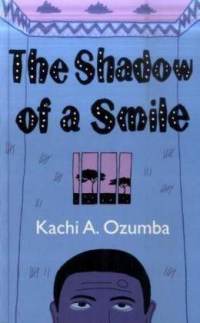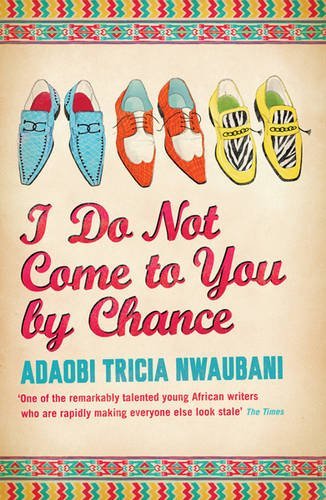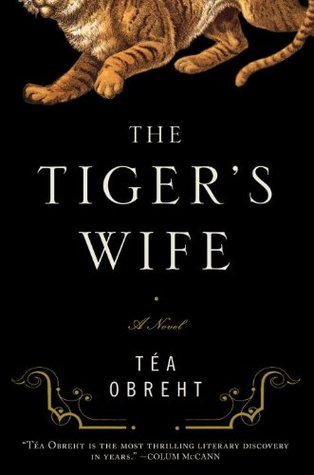The story: Meet Harry, an 11-year-old Ghanaian migrant who lives with his mother and sister in one of London’s rough inner-city council estates (Dell Farm Estate). At his school, Harri prides himself on being the fastest runner in Year 7 and appears to have settled his new life quite nicely despite the vast cultural differences. The story opens with Harri and his friend at the murder scene of a popular boy who once attended his school. He and his friend then take it upon themselves to go on a CSI-eque mission to find out who the killer is. Residing in Harri’s estate are the Dell Farm Crew, a sorry bunch of ragamuffins who go by the street names ok X-Fire (thats cross fire to you), Killa and some other irrelevants. Harri’s older sister, Lydia appears to have fallen in with them by proxy through Killa’s repulsive girlfriend, Myquita.
As the novel progresses, Helman makes it glaringly obvious who the killers are and I think for this reason, I found Harri’s naiveté extremely irritating!!! Harri’s brazen and innocent investigations continue to irk the “Dell Farm Crew” boys; he spies on them through binoculars, collects their fingerprints amongst other Inspector Gadget BS. The coup de grace comes on the last day of term, the day after Harri has had his sports day victory and shared a kiss with his girlfriend, Poppy. He is so elated that he begins to run home, on cloud nine, only for someone he recognises to bump into him and “chook” him. He lies in his own blood whilst speaking to his pigeon friend until his life escapes him. I forgot to mention The Pigeon. Yes, The Pigeon!!! Harri decides to make friends with a pigeon and leaves it titbits of food on his balcony, much to the annoyance of his mother. The novel is littered with excerpts from The Pigeon’s point of view (littered being the operative word).
Rewa’s take on things: When I first saw the title of the novel, I thought Helman had named it so because his characters would speak “pidgin English” as is the norm in many west African countries. There were only two Ghanaian slangs words, “hutious” and “Asweh” (you get to ABHOR this Asweh word by the end of the novel due to the sheer amount of repetition that Helman uses). Most of the time, we were given street slang like, “dope-fine” and “bo-styles”. I was bewildered.
There has been a lot of hype around this novel. What struck me about it is that Stephen is neither Ghanaian nor council-estate habitant, he is so far removed from either that I’m surprised he made these his focal point. Harri’s joie de vivre was very refreshing especially given that I’d just read about Zuba (The Shadow Of A Smile) and Griffin (The Invisible Man). A lot of critics and readers revere this novel and I think that it is because they’re reluctant to criticize writings on a topic so sensitive as gang violence amongst demoralized youth in an inner-city council estate. However, I believe that Stephen is a flawed writer but underscoring his fallibility is a cheap shot and an unsophisticated way of standing out from the crowd that seem to love this novel so much.
Harri’s impending “chooking” had been sign-posted throughout the entire novel – you just knew (well I knew) that it was going to happen. He was really tempting fate with the quintessential estate hooligans. What was interesting was viewing domestic abuse (his aunt Sonia and her Neanderthal of a boyfriend), bullying, sexual exploitation (Miquita – I retched some vomit into my mouth when she started kissing Harri and making him interact with her nether regions) and peripheral racism. It was interesting for two reasons. First one being that from a child’s point of view, one can easily get lost in how daily on-goings can affect their already impressionable outlook on life. However, Imy interest wasn’t piqued enough to explore these routes further. Second reason being that I don’t think I have ever come across such a naïve 11-year-old!!! I mean, come on, case of faux-naif if I ever did see one!!!!
Regarding The Pigeon’s POV; I neither enjoyed this nor thought it bore any relevance to the issue at hand. I don’t know what Helman was trying to achieve here but whatever it was, it was completely lost on yours truly! This pigeon was presented almost as an angel if you will. A pigeon. A friggin pigeon!!! It comes out with pretentious, prophetic statements such as, “they’re just meat looslely wrapped around a blazing star. We don’t mourn the wrapping once it’s discarded, we celebrate the freeing of the star”. It was neither poetic nor ink-worthy and detracted from the severity of the issues Helman was trying to draw attention to, especially coming from a filthy pigeon!
The only part of this novel that evoked any sort of emotion in me at all was when his mother said to his aunt Sonia that she’d brought her children over to UK so that they were given the opportunity to reach places higher than she ever could. Overall, I wouldn’t recommend this novel to anyone – it was a laudable effort on Helman’s part to try to shed light on a subject so sensitive and to try to get the reader to see that sometimes, these hoodlums are scared little boys hiding beneath their hoodies. I certainly remain unconvinced. And I still hate pigeons. And yes, they are still rats with wings.







